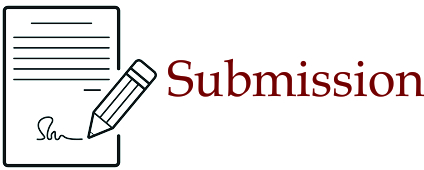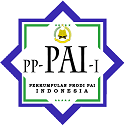Students’ Perceptions of Self-Assessment in Islamic Education Learning
Abstract
Assessment has shifted from assessment of learning to assessment for learning. Self-Assessment (SA) is generally a formative assessment practice and seems to play an important role in developing students' spiritual attitudes, including being obedient to worship, practicing Islamic teachings, and religious tolerance. This study aims to analyze students' perceptions of SA in learning Islamic Education (IE). Using experimental research, which was conducted at the Islamic Senior High School Surabaya, Indonesia in IE lessons. Data collection techniques using observation, interviews, and documentation. The population of this study is students at the Islamic Senior High School. The results of the research showed that students felt that they were able to assess their spiritual attitude and that SA helped students to learn IE, was able to increase learning motivation, students had positive experiences in implementing SA and there were great benefits from SA in developing spiritual attitudes.
Keywords
Full Text:
1-10References
Andrade, H., & Valtcheva, A. (2009). Promoting Learning and Achievement Through Self-Assessment. Theory Into Practice, 48(1), 12–19. https://doi.org/10.1080/00405840802577544
Aprinda, I., Amilda, A., & Astuti, M. (2020). Strategi Guru Pendidikan Agama Islam dalam Mengembangkan Sikap Spiritual Siswa Kelas VII SMP Negeri 6 Palembang. Muaddib: Islamic Education Journal, 3(1), 33–38. https://doi.org/10.19109/muaddib.v3i1.6296
Arifin, M. (2021). The Role of Islamic Religious Education in Developing Property in Students Indraprasta PGRI University , Jakarta. International Journal of Economics, Management, Business and Social Science, 1(1), 68–77.
Asikainen, H., Virtanen, V., Postareff, L., & Heino, P. (2014). The validity and students’ experiences of peer assessment in a large introductory class of gene technology. Studies in Educational Evaluation, 43, 197–205. https://doi.org/https://doi.org/10.1016/j.stueduc.2014.07.002
Asmarawati, E., Riyadi, & Sujadi, I. (2016). Proses integrasi sikap sosial dan spiritual dalam pembelajaran matematika pada siswa kelas VII SMP Negeri di kecamatan Purwodadi. Jurnal Elektronik Pembelajaran Matematika, 4(1), 58–69.
Azhari, D. W., Putri, W. F., & Asbari, M. (2022). The Role of Islamic Religious Education in Growing a Sense of Nationalism. Journal of Information Systems and Management (JISMA), 01(01), 24–28. https://jisma.org/index.php/jisma/article/view/4
Bassar, S., Ruswandi, U., & Erihadiana, M. (2021). Pendidikan Islam : Peluang dan Tantangan di Era Global dan Multikultural. J-PAI: Jurnal Pendidikan Agama Islam, 8(1), 63–75. https://doi.org/10.18860/ jpai.v8i1.9577
Boud, D., Dawson, P., Bearman, M., Bennett, S., Joughin, G., & Molloy, E. (2018). Reframing assessment research: through a practice perspective. Studies in Higher Education, 43(7), 1107–1118. https://doi.org/10.1080/03075079.2016.1202913
Brooks, V., & Fancourt, N. (2012). Is self-assessment in religious education unique? British Journal of Religious Education, 34(2), 123–137. https://doi.org/10.1080/01416200.2011.614747
Brown, G. T. L., Gebril, A., & Michaelides, M. P. (2019). Teachers’ Conceptions of Assessment: A Global Phenomenon or a Global Localism. Frontiers in Education, 4(March), 1–13. https://doi.org/10.3389/feduc.2019.00016
Coelho, J. (2021). The Importance of Education. REM - International Engineering Journal. https://doi.org/https://doi.org/10.1590/0370-44672021740013
Colliver, J. A., Verhulst, S. J., & Barrows, H. S. (2005). EDITORIAL: Self-Assessment in Medical Practice: A Further Concern About the Conventional Research Paradigm. Teaching and Learning in Medicine, 17(3), 200–201. https://doi.org/10.1207/s15328015tlm1703_1
Cooperation, D., & Sector, E. (2003). Education for All : a Human Right and Basic Need. Education.
Dadang Mahdar. (2014). KEDUDUKAN AKAL DALAM AL-QUR’AN DAN FUNGSINYA DALAM PENDIDIKAN HUKUM ISLAM. Adliya.
Damayanti, U. F., & Solihin. (2019). Pengembangan Kecerdasan Spiritual Anak Melalui Pembelajaran Dengan Penerapan Nilai. Syifa Al-Qulub 3, 2(Januari), 65–71.
Darmansyah, D. (2014). Teknik Penilaian Sikap Spritual dan Sosial dalam Pendidikan Karakter di Sekolah Dasar 08 Surau Gadang Nanggalo. Al-Ta Lim Journal, 21(1), 10–17. https://doi.org/10.15548/jt.v21i1.67
Douglas G Altman. (2005). Standard deviations and standard errors. Methods in Medical Research, 6, 199–200.
Falchikov, N., & Boud, D. (1989). Student Self-Assessment in Higher Education: A Meta-Analysis. Review of Educational Research, 59(4), 395–430. https://doi.org/10.3102/00346543059004395
González-Betancor, S. M., Bolívar-Cruz, A., & Verano-Tacoronte, D. (2017). Self-assessment accuracy in higher education: The influence of gender and performance of university students. Active Learning in Higher Education, 20(2), 101–114. https://doi.org/10.1177/1469787417735604
Hidayati, A., Rosidin, U., & Suyanto, E. (2015). Pengembangan lks problem based learning bermuatan sikap spiritual sosial dengan penilaian autentik. Jurnal Pembelajaran Fisika, 3(2), 13–23.
Idris, M. M., & Asyafah, A. (2020). Penilaian Autentik dalam Pembelajaran Pendidikan Agama Islam. Jurnal Kajian Peradaban Islam, 3(1), 1–9. https://doi.org/10.47076/jkpis.v3i1.36
Istiharoh, M., & Indartono, S. (2019). Learning Innovation for Character Education in Global Era: Methods and Assessments. 323(ICoSSCE 2018), 272–279. https://doi.org/10.2991/icossce-icsmc-18.2019.50
Kangaslampi, R., Asikainen, H., & Virtanen, V. (2022). Students’ perceptions of self-assessment and their approaches to learning in university mathematics. Lumat, 10(1), 1–22. https://doi.org/10.31129/LUMAT.10.1.1604
Kurniansyah, Heri. Daveta, N. (2018). the Influence of Intelligent Intellectual, Emotional and Spiritual on Accounting Understanding. International Conference on Information Technology and Business (ICITB), 132-144, 228–236.
Ma, Z., Yan, X., & Wang, Q. (2020). Assessing individual contribution in collaborative learning through self- and peer-assessment in the context of China. Innovations in Education and Teaching International, 57(3), 352–363. https://doi.org/10.1080/14703297.2018.1555049
Martínez, V., Mon, M. A., Álvarez, M., Fueyo, E., & Dobarro, A. (2020). E -Self-Assessment as a Strategy to Improve the Learning Process at University. Education Research International, 2020, 3454783. https://doi.org/10.1155/2020/3454783
Masbur. (2022). The International Journal of Social Sciences A Spiritual Pedagogic Approach to Learning ( Analytical Study of Approach Model ). 10(2).
Mokodenseho, S. (2021). Model Pendidikan Islam Progresif. J-PAI: Jurnal Pendidikan Agama Islam, 7(2), 72–86. https://doi.org/10.18860/jpai.v7i2. 11682
Munjiana, M. (2018). The Correlation between Self Assessment and Motivation in Learning English of the Second Grade Students of SMP Negeri 6 Palembang. JET (Journal of English Teaching), 4(1), 17. https://doi.org/10.33541/jet.v4i1.785
Ocktilia, H. (2022). Higher Education ’ s Roles as a Change Agent in the Implementation of Community Development Technology in the Independent Prosperous Village of Indonesia. 12(2), 277–286.
Otakoziyevna, G. F. (2022). THE IMPORTANT ROLE OF EDUCATION IN EDUCATION OF YOUTH. הארץ, 10(8.5.2017), 2003–2005.
Pettalongi, S. S. (2022). Understanding Indonesia millennia Ulama online knowledge acquisition and use in daily fatwa making habits. Education and Information Technologies, 27(3), 4117–4140. https://doi.org/10.1007/s10639-021-10779-7
Puji Sulani. (2020). INSTRUMENT FOR ASSESSING SPIRITUAL ATTITUDES OF BUDDHIST EDUCATION AND MANNERS AT JUNIOR HIGH SCHOOL LEVEL. Jurnal Pencerahan Mencerdaskan Dan Mencerahkan, 1999(December), 1–6.
Quddus, L., Khalid, M., & Waris Ali Khan, M. (2019). Teachers’ Self-Assessment of Their Teaching Effectiveness at Higher Secondary Level in Pakistan: A Case Study. KnE Social Sciences, 2019(2014), 807–817. https://doi.org/10.18502/kss.v3i22.5089
Ramadhan, S. A., & Mubarok, L. S. (2022). Rekonsepsi Pendidikan Karakter Berbasis Islam Pada Masyarakat Multikultural Singapura. J-PAI: Jurnal Pendidikan Agama Islam, 8(2), 96–107. https://doi.org/10.18860/jpai.v8i2.17437
Rianawaty, I., Suyata, Dwiningrum, S. I. A., & Yanto, B. E. (2021). Model of holistic education-based boarding school: A case study at senior high school. European Journal of Educational Research, 10(2), 567–580. https://doi.org/10.12973/EU-JER.10.2.567
Sharma, R., Jain, A., Gupta, N., Garg, S., Batta, M., & Dhir, S. (2016). Impact of self-assessment by students on their learning. International Journal of Applied and Basic Medical Research, 6, 226. https://doi.org/10.4103/2229-516X.186961
Sultoni, A. (2021). Multimedia Islamic Religious Education Based on Spiritual and Emotional Intelligence to Improve the Character of University Students. KnE Social Sciences, 2021(55), 1–8. https://doi.org/10.18502/kss.v5i3.8516
Wahid, A., & Hamami, T. (2021). Tantangan Pengembangan Kurikulum Pendidikan Islam dan Strategi Pengembangannya dalam Menghadapi Tuntutan Kompetensi Masa Depan. J-PAI: Jurnal Pendidikan Agama Islam, 8(1), 23–36. https://doi.org/10.18860/ jpai.v8i1.15222
Wandia, A. P. (2021). Pengembangan Instrumen Penilaian Diri (Self Assesment) Untuk Menilai Karakter Spritual Pada Pembelajaran Sosiologi Kelas XI SMA. JURNAL SIKOLA: JURNAL KAJIAN PENDIDIKAN DAN PEMBALAJARAN, 2(4), 235–252.
Wang, J., Gao, R., Guo, X., & Liu, J. (2020). Factors associated with students’ attitude change in online peer assessment–a mixed methods study in a graduate-level course. Assessment and Evaluation in Higher Education, 45(5), 714–727. https://doi.org/10.1080/02602938.2019.1693493
Wijayanti, A. (2022). Efektivitas Self Assessment dan Peer Assessment Dalam Pembentukan Karakter Siswa. Realita : Jurnal Penelitian Dan Kebudayaan Islam, 15(2), 1895–1898. https://doi.org/10.30762/realita.v15i2.482
Willey, K., & Gardner, A. (2010). Investigating the capacity of self and peer assessment activities to engage students and promote learning. European Journal of Engineering Education, 35(4), 429–443. https://doi.org/10.1080/03043797.2010.490577
DOI: https://doi.org/10.18860/jpai.v10i1.22887
Refbacks
- There are currently no refbacks.
Copyright (c) 2023 Niswatin Khoiriyah, Nur Maslikhatun Nisak, Kusaeri Kusaeri, Khoirun Niam

This work is licensed under a Creative Commons Attribution-ShareAlike 4.0 International License.
...............................................................................................................................................................
Editorial Office:
Fakultas Ilmu Tarbiyah dan Keguruan
Universitas Islam Negeri Maulana Malik Ibrahim Malang
Jalan Gajayana 50 Malang, Jawa Timur, Indonesia 65144
Phone (0341) 552398, Faximile (0341) 552398
E-mail: jpai@uin-malang.ac.id
...............................................................................................................................................................

J-PAI: Jurnal Pendidikan Agama Islam is licensed under a CC BY-SA 4.0.
...............................................................................................................................................................
Indexed by:

















